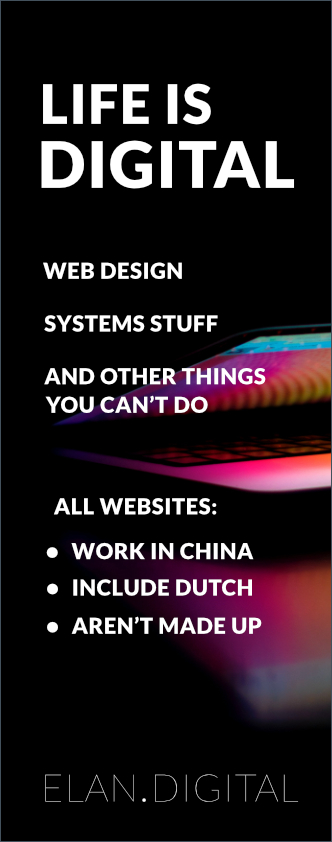
TASK ONE VOCABULARY: MAPS
Much of the vocabulary required to describe a map is relatively simple, things like swimming pools and shopping centres, for example. More difficult vocabulary is often provided for test takers on the map or on a key next to the map.
However, describing a map requires a high level of vocabulary for describing positions and changes. By improving this vocabulary, test-takers can rapidly improve their lexical resource (vocabulary) scores. The following lists show a wide range of vocabulary that can be practiced and used in all IELTS map question essays, along with example sentences for each.
Changes to structures
| to be extended | The main building has been extended on the western side. |
| to be replaced | The original small entrance ha been replaced with a larger one. |
| to be removed | The swimming pool in the centre of the building will be removed. |
| to be replaced by | The supermarket was replaced by a gym. |
| to be opened up | The centre of the building was opened up to provide more space. |
| to be relocated to | The vending machines were relocated to other parts of the museum. |
| to be turned into | The docks will be turned into a restaurant. |
| to be transformed into | The area outside the library has been transformed into a public park. |
| to be partitioned | The room at the back of the building was partitioned into a bar and a café. |
| to be added | Several shops will be added to the area in front of the cinema. |
| to be built | A bridge has been built to connect the commercial district to the highway. |
| to be erected | By 1999, a town hall had been erected behind the courthouse. |
| to be knocked down (to make way for something) | The primary school will be knocked down to make way for an industrial park. |
Changes to nature
| to be cut down | The area of trees near the castle will be cut down. |
| to be planted | Several trees were planted around the main entrance. |
No change
| to remain unchanged | The reception area has remained unchanged. |
| to remain in its original position | Unlike the coat room, the security office will stay in its original position. |
| to stay where it is | The flats stayed where they were. |
| to be left alone / where it is | The monument in the village centre will be left alone. |
Positional verbs
| to be located | Several beach huts are now located by the entrance to the beach. |
| to be situated | The houses are situated along the main street. |
| can/could be found | At present, fewer than four restaurants can be found in the entire town. |
| to be positioned | The new car park is positioned to the south east of the back entrance. |
Relative positional language
| (directly) in front of | There is a library directly in front of the halls of residence. |
| next to | There will be a new factory built next to the sports centre. |
| (directly) behind | The area of woodland behind the trains station will be cut down. |
| between | The new road will run between the industrial zone and the residential area. |
| (directly) opposite | The bus station directly opposite the mall is convenient for locals. |
| diagonally opposite | There are plans to build a public bathroom diagonally opposite the park. |
| on the opposite side of | There is a vending machine on the opposite side of the corridor. |
| on/in the corner | On the corner of the street. / In the corner of the room. |
| by the | There is also a police station by the park. |
| run along the (side of) | There is a new footpath running along the side of the river. |
| run next to the | A row of houses run next to the recently redeveloped green area. |
| run though (area) | The railway line runs through the residential area to the north. |
| connected to | The town is connected to the mountain via New York Road. |
| adjacent to | The site is adjacent to a national park. |
| nearby | There are a few parks nearby. |
Compass positions
| to the north/south/east/west of (or combinations e.g. north east) | The main residential area sits to the north west of the volcano. |
| to be north/south/east/west of (or combinations e.g. north east) | Several small villages are south west of the city. |
General distances
| can be easily reached on foot | The mountain can be easily reached on foot. |
| to be within easy walking distance of | The coast is within easy walking distance of the new hostel. |
| a short drive from | A short drive from the factory there is commercial port. |
| a few blocks from | A few blocks from the school there is a sports centre. |
| a few hundred metres from | A few hundred metres from the hostel there are outdoor sports facilities. |
| with/to have easy access to | The hostel is central with easy access to both shops and restaurants. |
Useful general phrases
| (group of people) can/could make use of (facility) | Students living at this location could make use of the library nearby. |
| (group of people) can/could enjoy | Guests at this location could enjoy the nearby beach. |
Comparative language (positive)
| closer to | The first site is closer to the train station. |
| bigger than | The second site is considerably bigger than the first. |
| more convenient than | Site on is far more convenient than site two. |
| more convenient for ______ than | Site on is far more convenient fr tourists who want to go shopping than site two. |
| more conveniently located than | Site two is more conveniently located. |
| has/have more _________ than | This location has more restaurants than the first. |
| easier access to | There is easier access to the main road from this location. |
| quieter than | Site one would be significantly quieter than site two. |
Comparative language (negative)
| not as close (as ________) | However, this site is not as close to the beach. |
| not as convenient (as ________) | For older people who cannot walk long distances, the second site is not as convenient as the first. |
| not as convenient for ________ as | This location is not as convenient for people driving from London. |
| not as conveniently located as _______ | For older people who cannot walk long distances, the second site is not as conveniently located as the first. |
| not as far from the _________ as _________ | The second position is not as far from the university as the first. |
| not as easy to ___________ as | The first site is not as easy to access. |
| further away from | Site two is much further away from any public transport. |
| harder to reach than | The mountain location is harder to reach than the one in the centre of the town. |
| noisier than | Any location near an industrial zone is likely to be noisier than a residential one. |
| more polluted than | The area between the two industrial zones will be more polluted than the other site. |
| less quiet/picturesque/interesting/attractive than | Site A is located in an area that is less picturesque than site B. |
| fewer facilities/restaurants/things to do than | There are fewer things to do around this part of the city. |
| but _____ would not + verb (e.g would not include / would not offer / would not allow) | The first site is much quieter than the second but would not offer anywhere near as many entertainment options for the elderly residents. |
Category adjectives
| urban | Site A is in an urban area near to the main road. |
| rural | The area surrounding the town is mostly rural villages and farms. |
| residential | The area surrounding the library is mostly residential. |
| industrial | It would more appropriate for a factory to be located in an industrial part of the city. |
| commercial | The small village was redeveloped into a large commercial port. |
| tourist | The town has become a popular tourist destination. |
| coastal | The small coastal village is harder to reach than the large town to the east. |
| green | To the north of the shopping mall there are many more green areas for locals to enjoy. |
Change in category
| be/become commercialised / more commercial | The rural fishing village has been commercialised, and now includes many hotels and shops. |
| be/become industrialised / more industrial | The area south of the highway will become more industrial. |
| be/become urbanised / more urban | The city is expected to grow rapidly, so the area to the north of the train station will be urbanised. |
| be/become more suitable for tourism | By adding several outdoor sports facilities, the town became more suitable for tourism. |
| be/become more residential | Now that ten houses have been built along the south road, the area between Marsden and Holden has become more residential. |
| be/become more green | The entrance area will become more green after adding trees and a small park. |
Using nouns and adjectives instead of verbs
Many of the verbs listed above that describe a type of change can also be used as nouns or adjectives. For example:
Verb - The dock area has been redeveloped and is now a restaurant.
Noun - The dock area has undergone redevelopment and is now a restaurant.
Adjective - The redeveloped dock area is now a restaurant.
This pattern is possible with most of the verbs in the ‘changes to _____’ tables above, but test-takers should be cautious as using either the noun or adjective structure too much will make the essay difficult to read.
Remember:
1. If a sentence can be written more simply without losing meaning or becoming informal, the simplest choice is usually the best.
2. Using an adjective requires a noun phrase (The redeveloped dock area…) which is a formal style appropriate for IELTS, but should also be used occasionally and only with confidence.
In most cases it is appropriate to use only verbs, or add one sentence that includes a verb such as ‘undergo’ plus a noun form.


